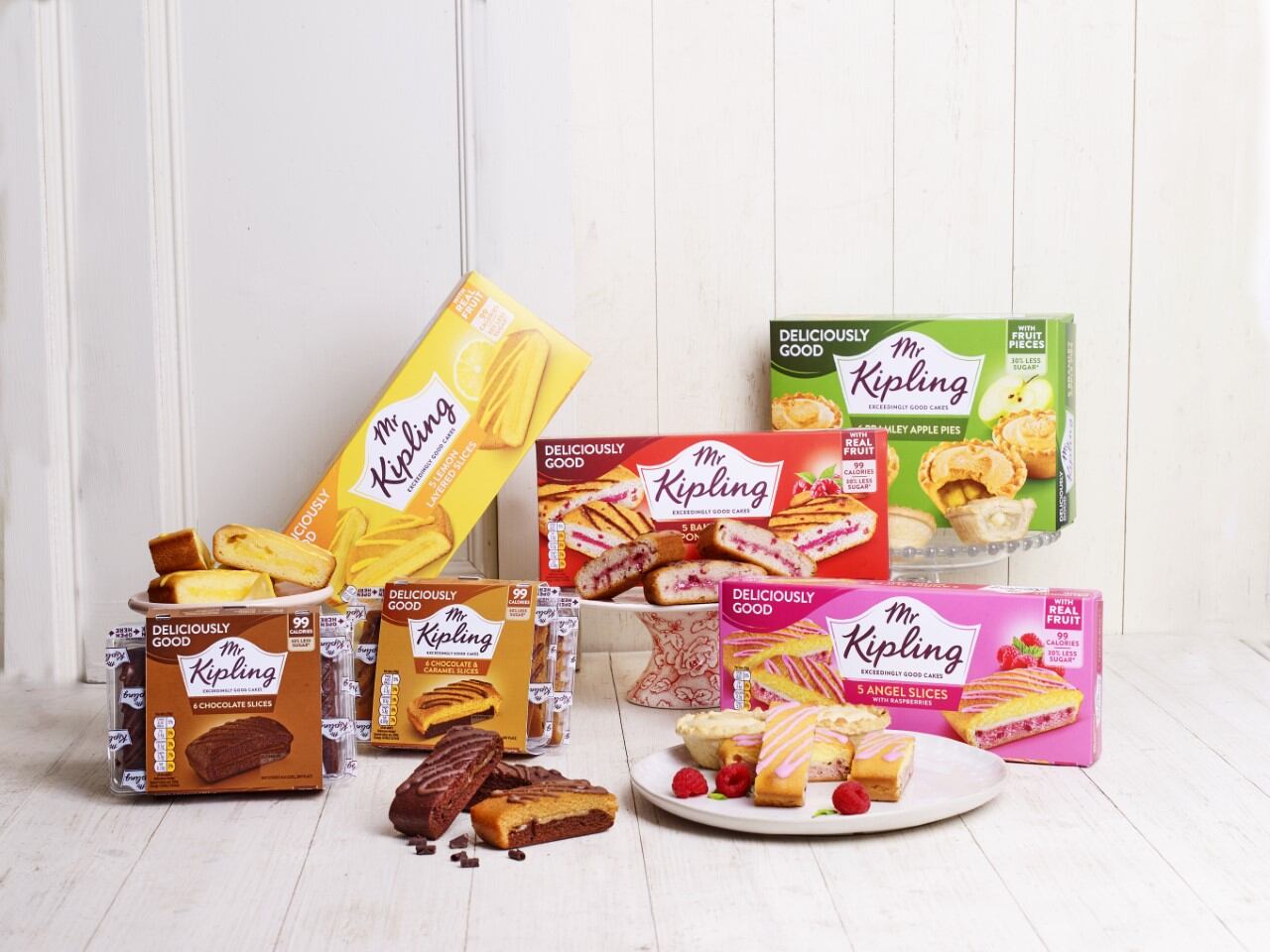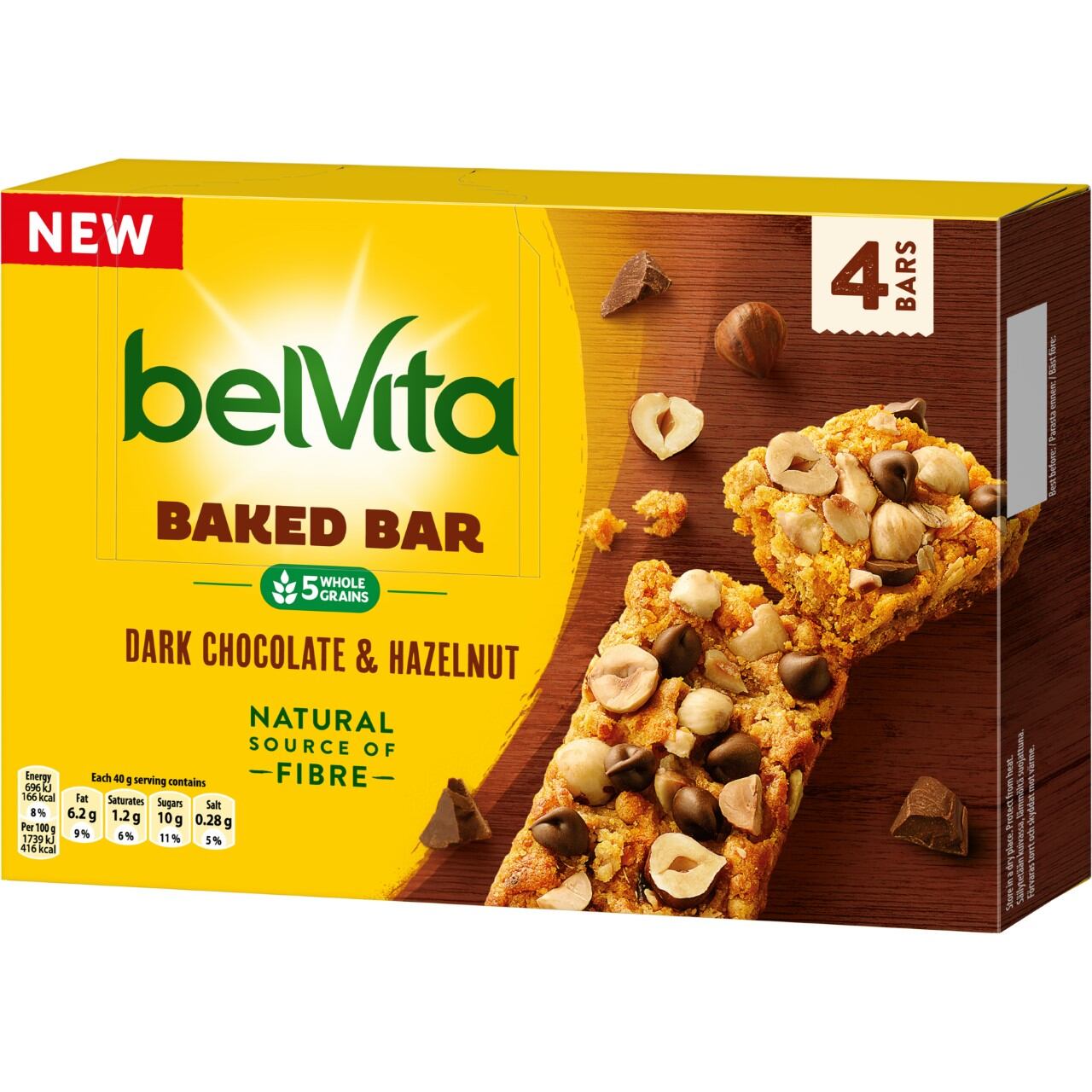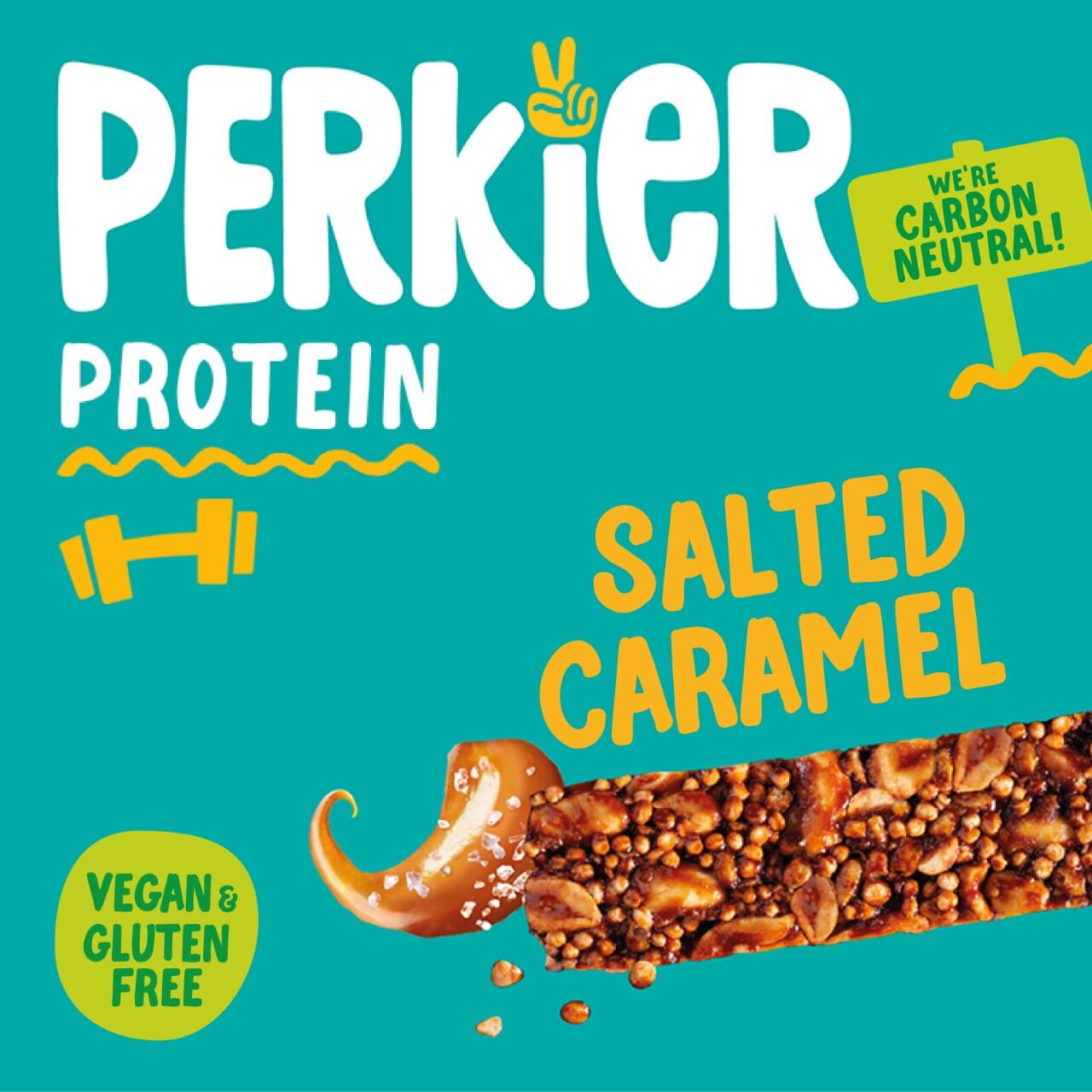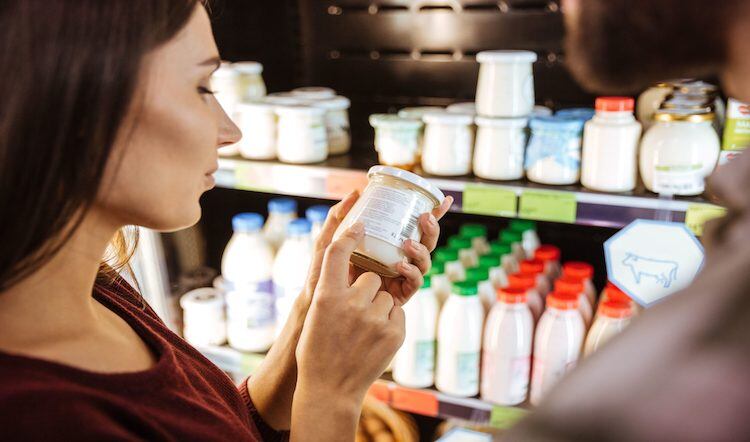The Government targeting of high fat, salt and sugar (HFSS) brands has come seen some controversy this year.
The High Court dismissed Kellogg’s legal challenge against the Government’s HFSS guidelines, while its delay in the implementation of restrictions on advertising and volume promotions has been criticised for contradicting its levelling up ambitions and escalating the cost of treating obesity.
Snack suppliers have been facing the HFSS challenge head on from cutting the sugar, fat and salt from its snacks – whether sweet or savoury – to focusing on substitution with alternative ingredients and all without trying not to compromise on taste.
The industry has seen a range of launches hit the market. Go-Ahead launched a non-HFSS recipe for its fruit slices, Nestle-owned Nature’s Heart has rolled out a range of non-HFSS savoury snacks and most recently Walkers revamped products from its three ranges – Walkers Baked, Doritos Dippers and PopWorks – to become non-HFSS.
And the signs are that this healthy snacking category is growing as consumers increasingly focus on their health and wellbeing.

Health and wellbeing
According to Mintel ‘Snack bars and Breakfast biscuits report, 2022’, 66% of snack bars are eaten in home vs 36% on-the-go and 26% at work/ school/ Uni/gym.
The report said that the ongoing return to workplaces and places of study in 2022, as consumers embrace the next normal, will provide a boost to the market.
“Snack bars and breakfast biscuits will continue to benefit from demand for both in-home and out-of-home snacks due to the on-the-go element of the category having enduring appeal. The healthier proposition of the market will help to drive sales, particularly if brands continue to invest in healthier variants to be HFSS compliant,” said Amy Price, senior food and drink analyst at Mintel.
Meanwhile, the healthier biscuit category is also growing by +4.5% following the pandemic (Nielsen Total coverage, value sales year-to-date, week ending. 25.06.22.)
One brand that has attempted to reformulate in the category is Premier Foods with Mr Kipling. In April, Mr Kipling launched its new Deliciously Good range – a healthier range of cakes and pies.
The range includes Lemon, Bakewell, Angel, Chocolate, and Chocolate Caramel cake slices, along with Bramley Apple Pies and Bramley Apple and Blackcurrant pies – all of which are classified as non-HFSS. The new range contains up to 10 times the amount of fibre than its standard range and provide as little as just 99 calories per portion.
“Consumer demand for healthier snacks and treats has been on the rise for some time and continues to grow,” says William Bolton, head of R&D for Sweet and International, Premier Foods.
“Not only are we seeing growing demand for nutritious meals and snacks, people are increasingly looking for healthier ways to treat themselves. In fact, 73% of shoppers told us they wanted healthier cake options.”

Taste test
Bolton says that this trend towards health shows no sign of slowing down but at the centre of these changes is ensuring the product retains its taste credentials and has the best balance of composition and functionality.
“When it comes to cake, taste is still paramount, but consumers want snacks that are portion controlled, lower in calories and sugar or have positive nutritional values like real fruit, fibre and protein,” he says.
“Cooking, and particularly baking, relies heavily on the functionality of core ingredients – for example oil or butter – which contribute significantly to products’ taste and feel. When developing new, healthier treats, utilising innovative new processes, ingredients and technologies are key to retaining these characteristics.”
He says that to create Mr Kipling Deliciously Good it drew on its “deep understanding” of the functionality of ingredients, recipes, and baking processes. This included adjusting processes to compensate for changes in composition and functionality of the product.
Susan Nash, trade communications manager at Mondelēz International, which produces the Belvita brand and the Cadbury Brunch Bar Chocolate Chip bar, says that there is a move towards healthier options with varied snacking options.
The Belvita brand saw the benefit of this and it has been a key driver of this category growth, currently growing at +10% and leading the way in terms of both frequency +4% MAT and penetration +11% (MAT Kantar World Panel, Total Coverage, Key Product Drivers, 52 week ended 12.06.22), she revealed.
“Healthier options remain important for consumers who are looking for healthier ingredients such as oats and other wholegrains – but won’t compromise on taste,” she adds.
“More recently however, we’ve seen the on-the-go occasion begin to recover, driving greater sales in snacks like healthier biscuits, cereal bars, and on-the-go biscuits.”

She also highlights an increasing consumer appetite for plant-based alternatives.
“Driven by this ongoing and increasing trend, the new Cadbury Plant Bar offers shoppers a delicious tasting experience from Cadbury, replacing milk with almond paste and rice extract. This provides a similar taste and texture to milk ingredients while offering a hint of nuttiness,” she says.
Entrepreneurial eye
But it is not just the larger manufacturers that have responded to the impact of HFSS, as smaller entrepreneurial companies have launched into this category.
Franco Beer, founder of Boka Foods, spent six years of intensive recipe development to produce a low fat, low sugar cereal bar.
“I developed Boka bars because I was frustrated with the lack of choice of healthy cereal bars. The products available claimed to be healthy but were loaded with fat, sugar and calories,” he said.
He argues that the Government's decision to delay elements of its obesity strategy is likely to impact on children’s health the most.
“Not only is it a blow to companies like ours that are committed to making healthy, great tasting snacks more widely available, but also to hard-pressed families that are doing the best they can to ensure their children eat well,” he says.
“It’s the industry's responsibility to offer healthier choices to consumers but we need help not hindrance from the Government.”
Meanwhile, some entrepreneurial brands are focusing on offering different types of healthy snacks off the mainstream.
Seaweed snacking
Shore, the Scottish seaweed snack company, says it has tweaked its original range of chip flavours – Lightly Salted, Asian Peking and Sweet Sriracha – to be HFSS compliant.
Co-founder Keith Paterson says that HFSS has been the “catalyst” for a lot of innovation from new challenger brands as well as some established brands re-formulating or launching line extensions that are compliant. And the packaging formats of these brands have also had to adapt.
“During lockdown we saw large demand for our share bag size of crisps. Not surprising that consumers would move to formats for in home consumption during this period. But we have seen this summer a real bounce back in impulse, with our sales of our 25g packs booming,” he added.
Matt Hunt, founder of The Protein Ball Co, agrees and says he is seeing more alternative 'healthier' options coming to market across different snacking categories.
“Unfortunately we're seeing many products substituting ingredients that would traditionally be higher in fats or sugars with those that may have lower numerical figures, but add little nutritional value,” he says.
The company has launched it high protein, low sugar recipe to meet the growing demand for richer protein alternatives. It has further innovated by minimising the amount of dates it has in the recipe that act as the natural sweetener and has focused more on nuts & fava beans that have been added to naturally increase the protein intake.
He says that snack ranges are adapting to provide healthier options for more aware consumers, with bigger ranges in more specialised categories such as protein and keto.
Reformulating the recipe
Lucinda Clay, co-founder of Munchy Seeds agrees that snack ranges are adapting. She is seeing sugar reduction “across the board” and says there is evidence to show that consumers’ palates are adapting to prefer ‘less’ sweetness. Alternative sweeteners are also being used to replace cane sugar with alternatives such as agave nectar and stevia.
She says that snack brands are increasingly using lighter cooking methods, such as baking rather than frying, especially when it comes to crisp snacks.
“The same is happening for nuts and seeds where roasting is done dry rather than using a vegetable oil,” she said.
Meanwhile, ingredients companies are also working on solutions to the HFSS issue.
Janin Zippel, strategic marketing manager – Bakery, Snacks & Confectionary EMEA at Ingredion says there is increasing consumer scrutiny of labels for healthy product and nutritional claims.
“Manufacturers must recognise the three steps to healthy snacking – nutrition, texture and taste – and support healthy diets with snacks that create ‘healthy indulgence’ without compromise to taste profile and texture,” he says.
“The snacks market will continue its transition into a more mainstream food that’s consumed every day. With that, consumer expectations will continue to evolve and the importance of delivering a healthy-indulgent balance, without compromise on taste and texture, will grow.”
Case Study: Perkier goes non-HFSS

Perkier, the health snack bar brand, has transformed a number of its products to non-HFSS.
Ann Perkins, founder of Perkier, told Food Manufacture that this has provided an opportunity for new listings of the brand with its non-HFSS products.
She says that the company has had to reduce or ‘tweak’ some of the nut content in its bars to make them compliant, has reformulated some with added fruit but kept to the ethos of added nutritional benefits and balance.
“We have tended to use fruits like dates as they are not too sweet. We didn’t want to add in more fruit and change the profile of the product,” she says.
“We don’t use glucose syrups because they are very high on sugar to bind the bars and we use a liquid form of chicory fire and that is really high in fibre and also a prebiotic which is really good for your gut.”
The company focuses on using nutritious and healthy ingredients and says that it has continued this ethos with its non-HFSS products.
“We use Quinoa puffs rather than rice puffs because they are very nutritious and are a good source of protein and vitamins. We use things like raw cacao powder rather than cocoa powder which is really good in antioxidants,” says Perkins.
“Our philosophy has always been to try and source every ingredient to be as nutritious as it possibly can be. Rather than calorie counting to reduce calories we are all about maximising the value of every calorie.”




